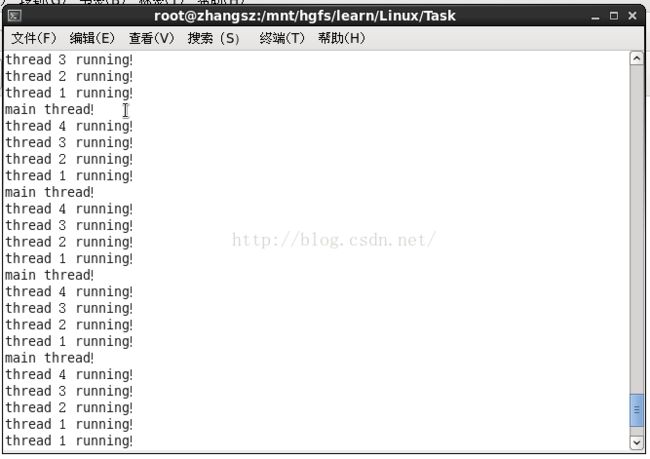- Linux 帧缓存 数据,嵌入式Linux通过帧缓存截图 – Framebuffer Screenshot in Embedded Linux...
weixin_39578674
Linux帧缓存数据
嵌入式Linux通过帧缓存截图–EmbeddedLinuxFramebufferScreenshot【目的】板子上已经可以运行Qtopia的demo和example了,想要将其qt的demo程序的画面截取下来,给其他人看。最原始的方法就是,找个相机,对着板子照几张即可。另外的办法,通过framebuffer去截图,截取运行中的qtdemo的画面,效果会更好,图片也更清晰。【解决过程】1.将fram
- 嵌入式Linux(1)——嵌入式Linux系统及其应用前景
7b749c3ec3cf
姓名:刘雨杉学号:19020100219学院:电子工程学院转自:https://blog.csdn.net/andyxie407/article/details/1629740【嵌牛导读】嵌入式Linux系统及其应用前景【嵌牛鼻子】嵌入式Linux操作系统应用前景【嵌牛提问】什么是嵌入式系统?【嵌牛正文】近年来,随着计算技术、通信技术的飞速发展,特别是互联网的迅速普及和3C(计算机、通信、消费电子
- 嵌入式设备上SystemTap调试工具使用
塵觴葉
杂谈linuxbpf
SystemTap调试工具简介SystemTap调试器常用于Linux内核的动态调试,不过该工具集也可用于应用的跟踪调试。随着Linux内核及其应用程序的复杂度不断加深,使用一些在功能上区别于传统的GDB调试工具就变得越来越重要了。这类调试工具具有低延时(LowLatency),高性能,动态调试的特点。嵌入式Linux设备的系统软件通常不需从头开发,这些调试工具可以帮助开发者快速理解Linux内核
- 掌握嵌入式Linux编程 - 第三版
秋玥多
掌握嵌入式Linux编程-第三版Mastering-Embedded-Linux-Programming-Third-EditionMasteringEmbeddedLinuxProgrammingThirdEdition,publishedbyPackt项目地址:https://gitcode.com/gh_mirrors/ma/Mastering-Embedded-Linux-Programm
- 什么是嵌入式Linux?嵌入式工程师为什么要学Linux?
TYTO
姓名:陈方园学号:19020100239学院:电子工程学院转自:https://blog.csdn.net/wy122222222/article/details/106380314【嵌牛导读】Linux从1991年问世到现在,短短的十几年时间已经发展成为功能强大、设计完善的操作系统之一,不仅可以与各种传统的商业操作系统分庭抗争,在新兴的嵌入式操作系统领域内也获得了飞速发展。嵌入式Linux(Em
- 适配ARM处理器的Linux内核
物联网_区块链_边缘计算_人工智能
“按照资料上的习惯说法,标准内核(或称基础内核)就是指主要在http://www.kernel.org/维护和获取的内核,实际上它也有平台属性的。这些linux内核并不总是适用于所有linux支持的体系结构。实际上,这些内核版本很多时候并不是为一些流行的嵌入式linux系统开发的,也很少运行于这些嵌入式linux系统上,这个站点上的内核首先确保的是在IntelX86体系结构上可以正常运行,它是基于
- 嵌入式Linux使用sqlite的库源码编译及用户程序的编译
junziruyu53
sqlite数据库
本文章记录了在嵌入式设备中使用sqlite数据库的前期编译工作,工作是在虚拟机ubuntu环境中进行的。首先需要去官网下载sqlite源码,官网地址SQLiteDownloadPage,下载后在虚拟机环境解压,进入文件目录,执行如下命令,将生成Makefile文件。其中,编译器及安装目标路径等需要根据自己的情况进行修改,单纯执行./configure一般不会成功。./configureCC=arm
- Linux下基于TCP协议的简易服务器实现(C语言)
代码能跑就可以
服务器linuxtcp/ipc语言开发语言
最近在学习Linux应用层开发,学习了基于TCP的简易服务器的搭建,在这里和大家分享分享。关键词:守护进程,TCP,进程和线程,系统调用,Makefile教程:嵌入式Linux应用层开发教程_bilibili目录知识准备服务端(tcp_server)客户端(tcp_client)守护进程(daemon_test)Makefile功能介绍知识准备守护进程:是一种在后台运行的进程,我们常听到的daem
- 嵌入式Linux(7)——五种常见的嵌入式操作系统
xxxxx_
姓名:谢恩龙学号:19020100029学院:电子工程学院转自:https://blog.csdn.net/weixin_42296625/article/details/82981741【嵌牛导读】嵌入式Linux系统时间设置【嵌牛鼻子】嵌入式Linux【嵌牛提问】常用嵌入式linux系统有哪些?【嵌牛正文】TOP1:μClinuxμClinux是一种优秀的嵌入式Linux版本,其全称为micr
- 嵌入式Linux系统CGI程序设计技术
MrZhangCC
嵌入式操作系统开发嵌入式CGILinux
1概述随着互联网应用的普及,越来越多的信息化产品需要接入互联网通过Web页面进行远程访问。嵌入式Web系统提供了一种经济、实用的互联网嵌入式接入方案。这里结合一种嵌入式WebServerBOA来介绍嵌入式Linux系统下的CGI程序设计技术。2WebServerBOA的实现与配置2.1uClinux下,主要有三个WebServer:HTTPD、THTTPD和BOA。HTTPD是最简单的一个WebS
- QEMU模拟ARM嵌入式LINUX系统
stxinu
嵌入式LinuxLinuxarm开发linuxqemu
0.准备工作本次仍是在Ubuntu13.10(64位,Kernel:3.13.6)下操作。首先,在$HOME目录下创建arm_qemu目录,用于存放我们等会用到的源码包等:mkdir~/arm_qemu本次共需安装和下载如下工具及源码包(涉及的下载工具默认已安装,不进行说明):a.qemusudoapt-getinstallqemub.交叉编译工具链sudoapt-getinstallgcc-4.
- Linux--汇编语法配置初始化的原理
广药门徒
linux运维服务器
------改编自正点原子Linux开发手册我们在学习STM32的时候几乎没有用到过汇编,可能在学习UCOS、FreeRTOS等RTOS类操作系统移植的时候可能会接触到一点汇编。但是我们在进行嵌入式Linux开发的时候是绝对要掌握基本的ARM汇编,因为Cortex-A芯片一上电SP指针还没初始化,C环境还没准备好,所以肯定不能运行C代码,必须先用汇编语言设置好C环境,比如初始化DDR、设置SP指针
- 1.计算机处理器架构+嵌入式处理器架构及知识
vv 啊
arm-linux学习linux系统架构
目录一:x86-64处理器架构二:Intel80386处理器(i386)1.i3862.i686三:嵌入式Linux知识:1.MinGW2.GNU计划2.1GNU工具链概述此次只分享英特尔和ADM处理器有关于x86的架构,至于嵌入式处理器架构请查看https://en.wikipedia.org/wiki/List_of_ARM_processors一:x86-64处理器架构x86-64,也称为x
- 嵌入式Linux(2)——嵌入式Linux前景和人才需求
xxxxx_
姓名:谢恩龙学号:19020100029学院:电子工程学院转自:https://blog.csdn.net/zhangluli/article/details/5178802【嵌牛导读】嵌入式Linux前景和人才需求【嵌牛鼻子】嵌入式Linux【嵌牛提问】嵌入式Linux前景是否可观?【嵌牛正文】随着iPhone的上市,一颗重磅炸弹砸向了嵌入式领域。嵌入式MacOS的稳定和一贯独具匠心的风格配合高
- 嵌入式linux(三)三大结构
Zhaorming.
Linux学习linuxc语言
1、顺序结构顺序结构是最简单的结构,程序按照代码的书写顺序依次执行每一条语句,没有分支或循环结构。1.1&&与||运算关于在顺序结构中,计算结果的问题:intmain(){inti=2;intj=3;intk;k=i、=、<=、==(注意不要少=)2.2if-elseif(condition){//如果条件为真执行这里的代码}else{//如果条件为假执行这里的代码}2.3if-elseif-el
- 嵌入式linux(二)数据类型
Zhaorming.
Linux学习linuxc语言算法
1、什么是CPU和RAM?CPU(中央处理器):处理器,用来计算数据。RAM(随机存取存储器):内存,用来存储数据日常中所说的“32GB”的B指的是byte(字节),1byte=8bit(位)CPU与RAM中有三条总线:1.地址总线:有几位就有多少条地址总线,32位有32条总线;64位有64条总线。每根线只有两种状态:0和1,如果想要访问编号0,那么32根线上都是0;如果要访问3,那么后两根线是1
- 嵌入式linux(四)结构体创建、调用、传参
Zhaorming.
Linux学习linuxc语言
1、什么是结构体结构体可以存放不同类型的变量或数组,类似于数据类型:可以将结构体看似于数据类型,调用结构体时需要定义一个变量,用来使用结构体内的变量。struct结构体名{数据类型变量名1;数据类型变量名2;数据类型变量名3;};2、创建结构体及调用结构体方式1.1.1struct创建结构体+声明调用structBooks{chartitle[50];charauthor[50];charsubj
- 树莓派基于rust编写linux驱动模块
ZechariahZheng
极客linux嵌入式rustlinux
最近一直在折腾rust编写linux驱动,这个是官方仓库。官方仓库提供了基本入门文档,也可以参考我之前的文章。网上也有一些,但是基本都是基于X86的。我这里提供一份基于嵌入式Linux的rust驱动编译模块模板:https://github.com/ZechariahZheng/rpi-linux-module-rust具体编译过程可以看项目中的README。更多的例程在官方仓库中的sample/
- 树莓派基于rust编写linux驱动模块
ZechariahZheng
linux嵌入式rustlinux
最近一直在折腾rust编写linux驱动,这个是官方仓库。官方仓库提供了基本入门文档,也可以参考我之前的文章。网上也有一些,但是基本都是基于X86的。我这里提供一份基于嵌入式Linux的rust驱动编译模块模板:https://github.com/ZechariahZheng/rpi-linux-module-rust具体编译过程可以看项目中的README。更多的例程在官方仓库中的sample/
- 嵌入式Linux&Android开发-DTS介绍
小智学长 | 嵌入式
嵌入式LinuxAndroid入门教程linuxandroidarm
目录一、DTS作用二、DTS与DTSI关系三、DTS如何转换为机器识别的文件四、设备树API<
- 嵌入式培养
静_静_
嵌入式培养是什么意思?目前高校在招生的时候通常会提到嵌入式人才培养,也许你并不了解嵌入式是啥?其实就是常常谈到的嵌入式,主要说其应用,就是一个嵌入式Linux系统,是根据不同需求而开发的系统,不同一般的windows系统,需要那么大个头,例如当前的拿在手里的平板电脑,如果你还用台式机那样的系统,那么相对应的硬件一定不能小,功耗也大还得插电吧。可以想像一下,那最后做出来产品是没人要的!国内第一家线上
- VS Code GD调试嵌入式Linux程序无法断点调试
“逛丢一只鞋”
i.MX6linuxvscodec++gcc/gdb编译调试
文章目录问题vscode的launch.json添加-g修改优化等级-O0问题使用gdb调试嵌入式Linux上的程序时,简单的c代码小程序,通过以下的方法可以正常的调试和运行Linux嵌入式gdbVSCode图形化调试教程但是最近编写的程序比较复杂,代码量也比较多在程序中打断点会发现没有反应,并且启动gdb之后断点符号是灰色的板子上的程序也是直接运行,没有按照断点位置停下来vscode的launc
- 基于嵌入式linux开发的“2048”游戏综合设计
Clearlovekui9
学号:17020110019姓名:高少魁【嵌牛导读】本设计将之前提到的在FPGA开发平台上设计的游戏2048移植到了嵌入式开发平台上,利用基于qemu开源软件的虚拟mini2440开发板,使用Framebuffer图形界面编程,屏幕上显示棋盘以及数字的图片、用户的分数、游戏胜利/失败的提示信息等。该游戏可以检测用户输入的内容进行各种操作,如上下左右移动、重启游戏、退出、直接取得游戏胜利等。该程序图
- 嵌入式Linux(10)——Linux常用指令
xxxxx_
姓名:谢恩龙学号:19020100029学院:电子工程学院转自:https://blog.csdn.net/qq_36994788/article/details/55683326【嵌牛导读】Linux常用指令【嵌牛鼻子】嵌入式Linux【嵌牛提问】Linux常用指令有哪些?【嵌牛正文】1.linux目录结构(前面有/)bin(binaries)存放二进制可执行文件sbin(superuserbi
- linux /dev/mem /dev/kmem驱动分析
绍兴小贵宁
Linux#内存linux内存管理
/dev/mem说明驱动注册用户空间调用mmap方法/dev/mem/dev/kmem说明/dev/mem”是linux系统的一个虚拟字符设备,无论是标准linux系统还是嵌入式linux系统,都支持该设备。物理内存的全镜像。可以用来访问物理内存/dev/kmem:kernel看到的虚拟内存的全镜像。可以用来访问kernel的内容。kernel部分内存用户空间本不可访问。但是因为所有进程共享内核空
- 嵌入式Linux系统镜像制作(基于SD卡)
Naisu Xu
嵌入式Linux与设备相关linux服务器运维
文章目录目的原理环境准备系统镜像制作从现有SD卡备份从空白文件开始制作系统镜像使用其它补充总结目的嵌入式Linux在开发过程中对于软件方面通常是bootloader、linuxkernel、rootfs、applications分开进行处理的,但到了生产阶段这样就不方便了。比较常见的做法是将所有内容整合到一起制作成系统镜像,这样在生产的时候只要烧录系统进行即可。这篇文件将介绍基于SD卡的系统镜像制
- QT - 配置嵌入式Linux设备
YottaYuan
QT-配置嵌入式Linux设备为给定设备构建Qt需要工具链和sysroot。此外,某些设备需要供应商特定的适应代码才能支持EGL和OpenGLES2.0。这与非加速平台(例如使用LinuxFB插件的平台)无关,后者仅用于基于软件的渲染。所述qtbase/mkspecs/devices目录包含多个设备的配置和图形适应代码。例如,linux-rasp-pi2-g++mkspec包含构建设置,例如Ras
- 嵌入式Linux——块设备驱动
moxue10
驱动嵌入式Linux驱动块设备
声明:本文章是看韦东山老师的教学视频后并阅读了一些博客后所写的块设备的驱动程序,其中包括一些对程序的分析,如果文中的分析与您的文章相同敬请提出,我会做相应的修改或删除。同时如果我的文章对你有所帮助那是我的幸运。说起块设备驱动,我们就会想我们为什么要学习块设备驱动啊?我们不是已经学了字符设备驱动了吗?我们可以用字符驱动程序去写块设备驱动吗?要回答上面的问题,我们就要试着将字符设备驱动用到块设备中,看
- Linux检测网络故障以及恢复网络的方法
快乐至上
linux网络检测编程代码
原文地址:http://www.linuxidc.com/Linux/2011-08/40336.htm在项目中遇到一个问题,嵌入式Linux设备工作一段时间后网络会出现故障,网线虽然连着,但却不能与外部主机通信。此时用串口调试内核,用ifconfigeth0up命令可以再度启动网络。所以现在的需要在网络故障时检测出来,然后复位网络。如何检测网络故障是一个问题,在网上搜索了半天也没有找到好的解决方
- 嵌入式Linux开发---Socket CAN通信驱动硬件编程
牛马大师兄
嵌入式Linux经验教程嵌入式硬件linux网络协议arm开发mcuiottcp/ip
提醒:使用LinuxCAN开发的需要具备网络编程的部分基础,SocketCAN的使用类似于TCP/IPLinux开发板通过Socketcan驱动设备的参考源码demo见文末。0、CAN基础准备CAN,全称为“ControllerAreaNetwork”,即控制器局域网,是国际上应用最广泛的现场总线之一。最初,CAN被设计作为汽车环境中的微控制器通讯,在车载各电子控制装置ECU之间交换信息,形成汽车
- Linux的Initrd机制
被触发
linux
Linux 的 initrd 技术是一个非常普遍使用的机制,linux2.6 内核的 initrd 的文件格式由原来的文件系统镜像文件转变成了 cpio 格式,变化不仅反映在文件格式上, linux 内核对这两种格式的 initrd 的处理有着截然的不同。本文首先介绍了什么是 initrd 技术,然后分别介绍了 Linux2.4 内核和 2.6 内核的 initrd 的处理流程。最后通过对 Lin
- maven本地仓库路径修改
bitcarter
maven
默认maven本地仓库路径:C:\Users\Administrator\.m2
修改maven本地仓库路径方法:
1.打开E:\maven\apache-maven-2.2.1\conf\settings.xml
2.找到
- XSD和XML中的命名空间
darrenzhu
xmlxsdschemanamespace命名空间
http://www.360doc.com/content/12/0418/10/9437165_204585479.shtml
http://blog.csdn.net/wanghuan203/article/details/9203621
http://blog.csdn.net/wanghuan203/article/details/9204337
http://www.cn
- Java 求素数运算
周凡杨
java算法素数
网络上对求素数之解数不胜数,我在此总结归纳一下,同时对一些编码,加以改进,效率有成倍热提高。
第一种:
原理: 6N(+-)1法 任何一个自然数,总可以表示成为如下的形式之一: 6N,6N+1,6N+2,6N+3,6N+4,6N+5 (N=0,1,2,…)
- java 单例模式
g21121
java
想必单例模式大家都不会陌生,有如下两种方式来实现单例模式:
class Singleton {
private static Singleton instance=new Singleton();
private Singleton(){}
static Singleton getInstance() {
return instance;
}
- Linux下Mysql源码安装
510888780
mysql
1.假设已经有mysql-5.6.23-linux-glibc2.5-x86_64.tar.gz
(1)创建mysql的安装目录及数据库存放目录
解压缩下载的源码包,目录结构,特殊指定的目录除外:
- 32位和64位操作系统
墙头上一根草
32位和64位操作系统
32位和64位操作系统是指:CPU一次处理数据的能力是32位还是64位。现在市场上的CPU一般都是64位的,但是这些CPU并不是真正意义上的64 位CPU,里面依然保留了大部分32位的技术,只是进行了部分64位的改进。32位和64位的区别还涉及了内存的寻址方面,32位系统的最大寻址空间是2 的32次方= 4294967296(bit)= 4(GB)左右,而64位系统的最大寻址空间的寻址空间则达到了
- 我的spring学习笔记10-轻量级_Spring框架
aijuans
Spring 3
一、问题提问:
→ 请简单介绍一下什么是轻量级?
轻量级(Leightweight)是相对于一些重量级的容器来说的,比如Spring的核心是一个轻量级的容器,Spring的核心包在文件容量上只有不到1M大小,使用Spring核心包所需要的资源也是很少的,您甚至可以在小型设备中使用Spring。
- mongodb 环境搭建及简单CURD
antlove
WebInstallcurdNoSQLmongo
一 搭建mongodb环境
1. 在mongo官网下载mongodb
2. 在本地创建目录 "D:\Program Files\mongodb-win32-i386-2.6.4\data\db"
3. 运行mongodb服务 [mongod.exe --dbpath "D:\Program Files\mongodb-win32-i386-2.6.4\data\
- 数据字典和动态视图
百合不是茶
oracle数据字典动态视图系统和对象权限
数据字典(data dictionary)是 Oracle 数据库的一个重要组成部分,这是一组用于记录数据库信息的只读(read-only)表。随着数据库的启动而启动,数据库关闭时数据字典也关闭 数据字典中包含
数据库中所有方案对象(schema object)的定义(包括表,视图,索引,簇,同义词,序列,过程,函数,包,触发器等等)
数据库为一
- 多线程编程一般规则
bijian1013
javathread多线程java多线程
如果两个工两个以上的线程都修改一个对象,那么把执行修改的方法定义为被同步的,如果对象更新影响到只读方法,那么只读方法也要定义成同步的。
不要滥用同步。如果在一个对象内的不同的方法访问的不是同一个数据,就不要将方法设置为synchronized的。
- 将文件或目录拷贝到另一个Linux系统的命令scp
bijian1013
linuxunixscp
一.功能说明 scp就是security copy,用于将文件或者目录从一个Linux系统拷贝到另一个Linux系统下。scp传输数据用的是SSH协议,保证了数据传输的安全,其格式如下: scp 远程用户名@IP地址:文件的绝对路径
- 【持久化框架MyBatis3五】MyBatis3一对多关联查询
bit1129
Mybatis3
以教员和课程为例介绍一对多关联关系,在这里认为一个教员可以叫多门课程,而一门课程只有1个教员教,这种关系在实际中不太常见,通过教员和课程是多对多的关系。
示例数据:
地址表:
CREATE TABLE ADDRESSES
(
ADDR_ID INT(11) NOT NULL AUTO_INCREMENT,
STREET VAR
- cookie状态判断引发的查找问题
bitcarter
formcgi
先说一下我们的业务背景:
1.前台将图片和文本通过form表单提交到后台,图片我们都做了base64的编码,并且前台图片进行了压缩
2.form中action是一个cgi服务
3.后台cgi服务同时供PC,H5,APP
4.后台cgi中调用公共的cookie状态判断方法(公共的,大家都用,几年了没有问题)
问题:(折腾两天。。。。)
1.PC端cgi服务正常调用,cookie判断没
- 通过Nginx,Tomcat访问日志(access log)记录请求耗时
ronin47
一、Nginx通过$upstream_response_time $request_time统计请求和后台服务响应时间
nginx.conf使用配置方式:
log_format main '$remote_addr - $remote_user [$time_local] "$request" ''$status $body_bytes_sent "$http_r
- java-67- n个骰子的点数。 把n个骰子扔在地上,所有骰子朝上一面的点数之和为S。输入n,打印出S的所有可能的值出现的概率。
bylijinnan
java
public class ProbabilityOfDice {
/**
* Q67 n个骰子的点数
* 把n个骰子扔在地上,所有骰子朝上一面的点数之和为S。输入n,打印出S的所有可能的值出现的概率。
* 在以下求解过程中,我们把骰子看作是有序的。
* 例如当n=2时,我们认为(1,2)和(2,1)是两种不同的情况
*/
private stati
- 看别人的博客,觉得心情很好
Cb123456
博客心情
以为写博客,就是总结,就和日记一样吧,同时也在督促自己。今天看了好长时间博客:
职业规划:
http://www.iteye.com/blogs/subjects/zhiyeguihua
android学习:
1.http://byandby.i
- [JWFD开源工作流]尝试用原生代码引擎实现循环反馈拓扑分析
comsci
工作流
我们已经不满足于仅仅跳跃一次,通过对引擎的升级,今天我测试了一下循环反馈模式,大概跑了200圈,引擎报一个溢出错误
在一个流程图的结束节点中嵌入一段方程,每次引擎运行到这个节点的时候,通过实时编译器GM模块,计算这个方程,计算结果与预设值进行比较,符合条件则跳跃到开始节点,继续新一轮拓扑分析,直到遇到
- JS常用的事件及方法
cwqcwqmax9
js
事件 描述
onactivate 当对象设置为活动元素时触发。
onafterupdate 当成功更新数据源对象中的关联对象后在数据绑定对象上触发。
onbeforeactivate 对象要被设置为当前元素前立即触发。
onbeforecut 当选中区从文档中删除之前在源对象触发。
onbeforedeactivate 在 activeElement 从当前对象变为父文档其它对象之前立即
- 正则表达式验证日期格式
dashuaifu
正则表达式IT其它java其它
正则表达式验证日期格式
function isDate(d){
var v = d.match(/^(\d{4})-(\d{1,2})-(\d{1,2})$/i);
if(!v) {
this.focus();
return false;
}
}
<input value="2000-8-8" onblu
- Yii CModel.rules() 方法 、validate预定义完整列表、以及说说验证
dcj3sjt126com
yii
public array rules () {return} array 要调用 validate() 时应用的有效性规则。 返回属性的有效性规则。声明验证规则,应重写此方法。 每个规则是数组具有以下结构:array('attribute list', 'validator name', 'on'=>'scenario name', ...validation
- UITextAttributeTextColor = deprecated in iOS 7.0
dcj3sjt126com
ios
In this lesson we used the key "UITextAttributeTextColor" to change the color of the UINavigationBar appearance to white. This prompts a warning "first deprecated in iOS 7.0."
Ins
- 判断一个数是质数的几种方法
EmmaZhao
Mathpython
质数也叫素数,是只能被1和它本身整除的正整数,最小的质数是2,目前发现的最大的质数是p=2^57885161-1【注1】。
判断一个数是质数的最简单的方法如下:
def isPrime1(n):
for i in range(2, n):
if n % i == 0:
return False
return True
但是在上面的方法中有一些冗余的计算,所以
- SpringSecurity工作原理小解读
坏我一锅粥
SpringSecurity
SecurityContextPersistenceFilter
ConcurrentSessionFilter
WebAsyncManagerIntegrationFilter
HeaderWriterFilter
CsrfFilter
LogoutFilter
Use
- JS实现自适应宽度的Tag切换
ini
JavaScripthtmlWebcsshtml5
效果体验:http://hovertree.com/texiao/js/3.htm
该效果使用纯JavaScript代码,实现TAB页切换效果,TAB标签根据内容自适应宽度,点击TAB标签切换内容页。
HTML文件代码:
<!DOCTYPE html>
<html xmlns="http://www.w3.org/1999/xhtml"
- Hbase Rest API : 数据查询
kane_xie
RESThbase
hbase(hadoop)是用java编写的,有些语言(例如python)能够对它提供良好的支持,但也有很多语言使用起来并不是那么方便,比如c#只能通过thrift访问。Rest就能很好的解决这个问题。Hbase的org.apache.hadoop.hbase.rest包提供了rest接口,它内嵌了jetty作为servlet容器。
启动命令:./bin/hbase rest s
- JQuery实现鼠标拖动元素移动位置(源码+注释)
明子健
jqueryjs源码拖动鼠标
欢迎讨论指正!
print.html代码:
<!DOCTYPE html>
<html>
<head>
<meta http-equiv=Content-Type content="text/html;charset=utf-8">
<title>发票打印</title>
&l
- Postgresql 连表更新字段语法 update
qifeifei
PostgreSQL
下面这段sql本来目的是想更新条件下的数据,可是这段sql却更新了整个表的数据。sql如下:
UPDATE tops_visa.visa_order
SET op_audit_abort_pass_date = now()
FROM
tops_visa.visa_order as t1
INNER JOIN tops_visa.visa_visitor as t2
ON t1.
- 将redis,memcache结合使用的方案?
tcrct
rediscache
公司架构上使用了阿里云的服务,由于阿里的kvstore收费相当高,打算自建,自建后就需要自己维护,所以就有了一个想法,针对kvstore(redis)及ocs(memcache)的特点,想自己开发一个cache层,将需要用到list,set,map等redis方法的继续使用redis来完成,将整条记录放在memcache下,即findbyid,save等时就memcache,其它就对应使用redi
- 开发中遇到的诡异的bug
wudixiaotie
bug
今天我们服务器组遇到个问题:
我们的服务是从Kafka里面取出数据,然后把offset存储到ssdb中,每个topic和partition都对应ssdb中不同的key,服务启动之后,每次kafka数据更新我们这边收到消息,然后存储之后就发现ssdb的值偶尔是-2,这就奇怪了,最开始我们是在代码中打印存储的日志,发现没什么问题,后来去查看ssdb的日志,才发现里面每次set的时候都会对同一个key
